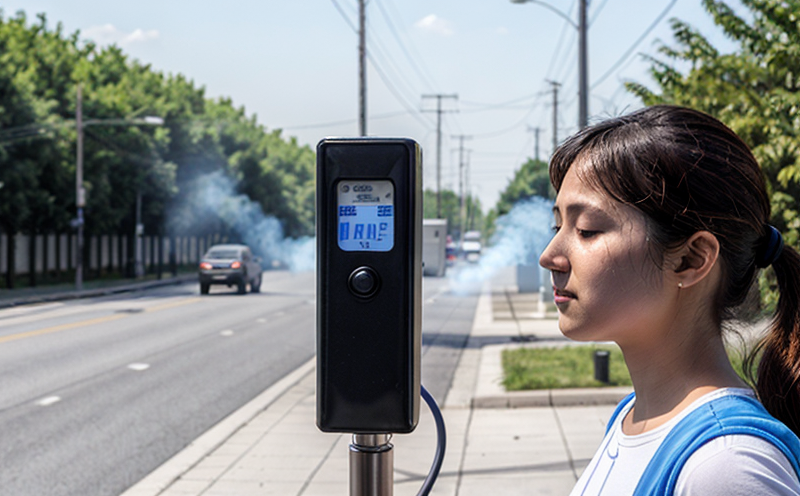Evaluating UV Radiation Impact on Gas and Air Quality Sensors
Evaluating UV Radiation Impact on Gas and Air Quality Sensors Ensuring Accuracy in Critical Environments
In todays world of precision measurement and data-driven decision making, the accuracy of gas and air quality sensors is more crucial than ever. These devices are relied upon to monitor pollutants, emissions, and other atmospheric conditions that can have significant impacts on public health, environmental sustainability, and economic performance. However, one often-overlooked factor that can compromise sensor accuracy is ultraviolet (UV) radiation.
As the primary component of sunlight, UV radiation has the potential to significantly affect gas and air quality sensors, leading to measurement errors, equipment degradation, and even complete system failure. In this article, we will delve into the importance of evaluating UV radiation impact on gas and air quality sensors, highlighting the benefits of our laboratory service at Eurolab.
Understanding the Risks Why Evaluating UV Radiation Impact Matters
UV radiation can interact with sensor components in various ways, leading to inaccurate readings or system malfunction. For instance
Spectral degradation Prolonged exposure to UV radiation can cause the spectral response of sensors to shift, resulting in incorrect measurements.
Optical interference UV radiation can interfere with the optical signals transmitted by sensors, causing errors in data acquisition and processing.
Sensor material degradation UV radiation can damage sensor materials, such as photodiodes or other optoelectronic components, leading to reduced sensitivity or complete failure.
The consequences of inaccurate gas and air quality measurements are far-reaching
Environmental harm Incorrect pollution monitoring can lead to inadequate regulatory enforcement, putting public health and ecosystems at risk.
Economic losses Inaccurate sensor data can result in costly decisions, such as inefficient resource allocation, investment in ineffective technologies, or even closure of critical infrastructure.
System downtime Sensor failure due to UV radiation exposure can cause significant disruptions to operations, leading to lost productivity and revenue.
Benefits of Evaluating UV Radiation Impact on Gas and Air Quality Sensors
By evaluating the impact of UV radiation on gas and air quality sensors, businesses can
Ensure accuracy and reliability Identify potential sources of measurement error and take corrective action to prevent sensor degradation.
Optimize maintenance schedules Schedule regular calibrations and replacements to minimize downtime and maximize sensor lifespan.
Reduce costs Avoid costly decisions based on inaccurate data and reduce the risk of system failure.
Improve regulatory compliance Ensure accurate monitoring and reporting, reducing the risk of non-compliance and associated fines.
Key Benefits at a Glance
Here are some key benefits of evaluating UV radiation impact on gas and air quality sensors
Improved accuracy Reduce measurement errors and ensure reliable data
Increased lifespan Extend sensor life by identifying potential sources of degradation
Reduced downtime Minimize system disruptions through proactive maintenance scheduling
Cost savings Avoid costly decisions based on inaccurate data
Enhanced regulatory compliance Ensure accurate monitoring and reporting
Frequently Asked Questions
Q What types of gas and air quality sensors are susceptible to UV radiation impact?
A Most optical-based sensors, including photodiodes, LED-based sensors, and optoelectronic components, can be affected by UV radiation.
Q How often should I evaluate the impact of UV radiation on my sensors?
A Regular evaluations (e.g., every 6-12 months) are recommended to ensure ongoing accuracy and reliability.
Q Can I perform self-testing for UV radiation impact?
A While some basic tests can be performed, it is highly recommended to engage a laboratory with specialized expertise in sensor evaluation.
Conclusion
Evaluating UV radiation impact on gas and air quality sensors is a critical aspect of ensuring accurate measurements and reliable operations. By understanding the potential risks and benefits associated with this service, businesses can take proactive steps to minimize errors, reduce costs, and optimize performance. At Eurolab, our laboratory services are designed to provide expert evaluation and calibration of gas and air quality sensors, helping you maintain precise measurement and meet regulatory requirements.
By partnering with us, youll benefit from
Expert analysis Our skilled technicians and scientists will evaluate your sensors for UV radiation impact.
State-of-the-art equipment We utilize the latest technology to ensure accurate testing and calibration.
Comprehensive reporting Receive detailed reports outlining any findings and recommendations for improvement.
Dont compromise on sensor accuracy. Trust Eurolab to ensure the reliability of your gas and air quality measurements.
References
For further information or to schedule a laboratory service, please visit our website.




